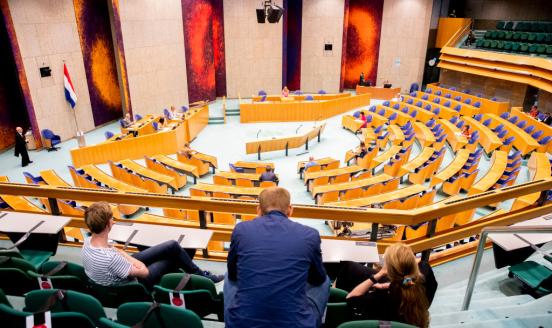A German fiscal union?
The euro area has come to a critical point. Failure to act will lead to disintegration with non-calculable costs for all member state economies, massive increases in unemployment and a large drop in well-fare. Why has no viable solution been found so far in face of such massive cost? The main reason is a classic coordination problem. In the absence of trust or a strong supra-national institution, individual countries will negotiate based on narrowly defined national interest, despite the fact that the final result will be worse for everybody.
From a technical point of view, three things need to be addressed. First, a lender of last resort needs to be created in order to stop self-fulfilling sovereign crises. Interest rates paid on sovereign bonds in a number of countries are clearly the result of self-fulfilling crisis, which will ultimately force default even on a country like Italy with devastating consequences for the euro area as a whole. This lender of last resort needs to have significant firing power to be credible. In principle, such liquidity crises can most easily addressed with the Central Bank and in the short term there may be little other option. However, often liquidity and solvency crises are difficult to distinguish thereby risking a monetary financing of insolvencies. It may therefore be preferable in the long run to rely on a fiscal lender of last resort. Second, the very real and dangerous problem of moral hazard needs to be addressed. Unfortunately, the experience of this summer has documented this risk. The help provided by the ECB for Italy has led to less not more reforms. Third, the integrated euro area banking system needs an integrated and powerful banking supervision and resolution authority backed by enough means to prevent bank runs. The current system centered around national supervisors and national fiscal resources is clearly fragile and bank runs have started in a number of countries.
At the heart of these problems is the absence of a supranational authority. The euro area needs a strong euro area authority that can fulfill these three functions by being able to raise taxes, being strong to veto countries’ economic policies and having enough power and resources to backstop and close banks if necessary. The crisis resolution strategy so far has failed to deliver that. Even worse, by relying on intergovernmental approaches such as the EFSF it has aggravated the situation and increased the veto power of any member state. Thus, the strengthening of an intergovernmental approach has prevented effective solutions by increasing the coordination failure in the euro area.
More and more commentators and even the Polish foreign minister Radoslaw Sikorski are calling for German leadership. The expressed hope is that Germany as the largest and most powerful economy will act in almost a supranational manner to save the euro. The historic dimension of these calls is breath-taking. However, Germany does not have the economic and political ability to save the euro by itself. Economically, German resources are insufficient to back up euro area debt and banks. Politically, German leadership will not be strong and balanced enough to come to an outcome that prevents moral hazard and ensures prosperity in the euro area.
20th century history points to one exclusive possibility of how Germany can exercise leadership: it is within the EU. German leadership therefore now calls for the creation of a strong supra-national euro area authority within the EU. This euro area authority will need to have true federal powers and accordingly national powers will have to be reduced. This will have to include a reduction in the power of national parliaments, including that of the Bundestag. Such a supra-national structure would require treaty changes but it would have the benefit of creating a true coordinator of European policy making. This supra-national authority will also need to derive its legitimacy from a supra-national level. In other words, more democratic legitimacy at the EU level will be important. Ultimately, more Europe will be to the benefit of France, Germany and all the countries of the EU by creating a stable and prosperous economic area that can act on the global scene. Let us hope that our leaders understand the historic dimension of their decisions: releasing power will ultimately increase it.
Guntram B. Wolff is co-author of “What kind of fiscal union?”



